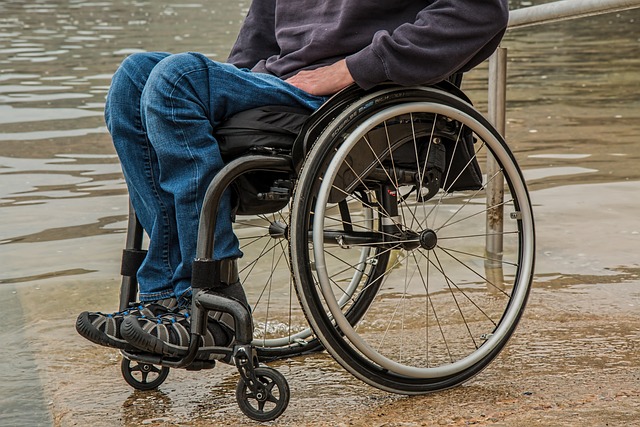Navigating Life with a Disability: 8 Tips for Living Your Best Life

Living with a disability can be challenging, but it doesn’t have to hold you back from achieving your goals and living a great life.
With the right mindset, support system, and resources, you can overcome the obstacles that come with having a disability and lead a fulfilling and happy life.
In this article, we’ll explore some practical tips for navigating life with a disability.
1. Embrace Your Disability in a Healthy Way
The first step in navigating life with a disability is to accept and embrace your disability. It’s essential to understand that your disability does not define you or limit your potential. Instead, it’s a part of who you are, and it’s okay to ask for help when you need it.
Embracing your disability can also help you connect with others who share similar experiences, which can be a great source of support. Eventually, you can show others that having a disability doesn’t need to hold you back.
2. Build a Support System
Having a strong support system is crucial when navigating life with a disability. Your support system can consist of family, friends, and professionals who can offer guidance, encouragement, and practical assistance. You might also benefit from engaging with organizations or groups focused on advocacy for the disabled, as they can provide both community support and access to valuable resources.
It’s essential to communicate your needs and boundaries with your support system and to seek out additional resources if necessary.
3. Focus on What You Can Do
It’s easy to get caught up in what you can’t do when living with a disability, but it’s essential to focus on what you can do. Everyone has strengths and weaknesses, and it’s essential to recognize and build on your strengths.
By focusing on your abilities, you can set achievable goals and work towards them, which can help you build confidence and a sense of accomplishment no matter how your disability limits your mobility.
4. Accessing Healthcare Benefits
Accessing healthcare benefits is a crucial aspect of navigating life with a disability. It’s essential to understand what benefits are available to you and how to access them. In the United States, the Social Security Administration offers disability benefits, including Social Security Disability Insurance (SSDI) to those who can no longer work like they used to.
In addition to paying a monthly amount for living expenses, people who qualify for social security disability often get medical plans to go with it. Healthcare is one of many benefits available to people with SSDI. It’s important to work with a knowledgeable professional to ensure that you’re accessing all the benefits you’re entitled to.
5. Stay Active if Possible
Staying active is essential when navigating life with a disability. Regular exercise can help improve physical and mental health, boost self-esteem, and provide opportunities for social interaction. It’s essential to find activities that you enjoy and are safe for you to participate in.
Consider joining a gym or community center that offers adaptive programs or seeking out sports teams or clubs for individuals with disabilities. You may find that you can’t use your legs, but you can build upper body strength with the help of certified personal trainers of an inclusive gym like Spirit Club. You may find that arthritis makes it hard to move, but a warm pool gives you relief and mobility.
6. Pursue Your Passions
Having a disability does not mean that you can’t pursue your passions. Whether it’s a career, hobby, or creative pursuit, there are ways to adapt and accommodate your disability to achieve your goals.
It’s essential to research and seek out resources that can help you pursue your passions, such as assistive technology or adaptive equipment that can help you do the things you love.
7. Practice Healthy Self-Care
Self-care is important for everyone, especially when you are navigating something like a lifelong disability. It’s easy to get overwhelmed with daily challenges, so taking time to prioritize your physical and mental well-being is crucial.
Self-care can include activities such as meditation, massage, or therapy, as well as prioritizing rest and relaxation.
8. Advocate for Yourself
Advocating for yourself is essential when navigating life with a disability. It’s important to understand your rights and communicate your needs and concerns to others.
This can include advocating for accommodation in school or the workplace, requesting accessible transportation or housing, or speaking up if you feel you’re being discriminated against. It’s also important to build relationships with policymakers and advocate for policies that benefit individuals with disabilities.
Conclusion
Navigating life with a disability can be challenging, but with the right mindset and support system, it’s possible to live a fulfilling and happy life.
Embracing your disability, building a support system, focusing on what you can do, accessing healthcare benefits, staying active, pursuing your passions, and practicing self-care are all crucial aspects of navigating life with a disability.
By incorporating these tips into your life, you can overcome the obstacles that come with having a disability and achieve your goals.






